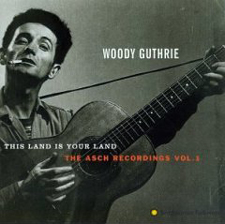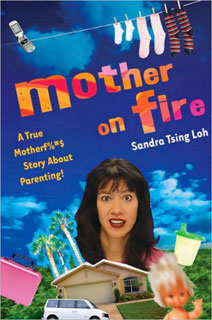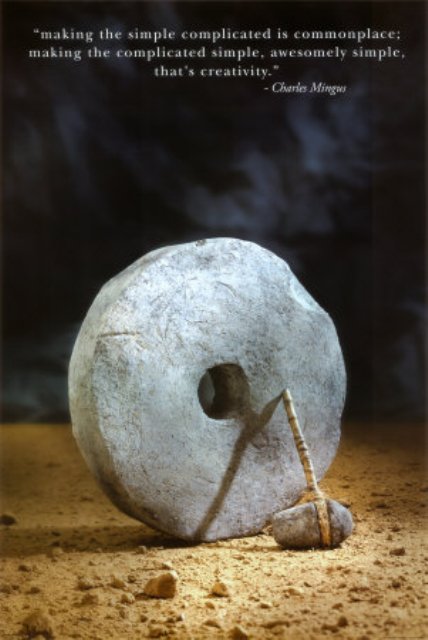Dewey 21C: January 2009 Archives
Today, The National Endowment for the Arts issues a statement about arts and the economic stimulus package.
It's most interesting as it positions the Arts Endowment well as a mechanism for distributing funds. As most of you know, the House version of the package, which has already been passed, includes $50 million for the NEA over and above its baseline of funding.
For the moment, this funding is not in the Senate version.
It's most interesting as it positions the Arts Endowment well as a mechanism for distributing funds. As most of you know, the House version of the package, which has already been passed, includes $50 million for the NEA over and above its baseline of funding.
For the moment, this funding is not in the Senate version.

If you believe that past is present, and that severe cuts to school budgets, combined with cuts from private funders, would deal a terrible blow to arts education, well then, it's important to take a look at the education portion of the stimulus plan, which I hear is changing by the day.
At the moment, it appears that the education portion of the package will help save arts and other teachers from layoffs. The stimulus package on the education side may help save district arts administration positions, created arts spaces, pay for technology, and more, hopefully. While much of the arts and culture field has been looking at the stimulus package through the lens of what might be done for the arts field, per se, it's important to look at the education side and know that there are some organizations working to ensure that arts education is part of the overall education stimulus plan.
Click here to read a good piece from The New York Times on the the stimulus package and education.
 My friend Diane Ravitch, offers some advice for Arne Duncan in last week's Washington Post.
My friend Diane Ravitch, offers some advice for Arne Duncan in last week's Washington Post.No beating about the bush, Diane offers some straight up advice on what works and what doesn't, particularly in regards to NCLB and the USDOE.
A refreshing opinion. Here's a little teaser: "You have a chance to make a historic difference by abolishing the No Child Left Behind legislation. Signed into law in 2002, this law has turned our schools into testing factories, narrowed the curriculum to the detriment of everything other than reading and math, and prompted states to claim phony test score gains."
It's a bit tough to profess ambivalence at best, skepticism at worst, when so many people are clamoring for the creation of a cabinet-level position for the arts. A Secretary of the Arts, or a Secretary of Arts and Culture, etc., along with a new Federal Department to match the position.
Historically, the creation of a new executive department within the Cabinet is a very, very big deal. It was a long time coming, for instance, for the creation of a Department of Education (1980). Not to mention a sizable number of people who fought it, and the sizable number of people who remain committed to eliminating it.
Of course, I do love the USDOE grant my organization received this year.
It sounds so great on paper, but the devil is always in the details, and I guess what the animus here is tilting towards, ultimately, is a national cultural policy. Is that even possible/practical in the United States? And, what happens to the NEA, NEH, etc? Just a few examples of how tricky this all might be.
Some might argue that those agencies could be rethought, along with the proposed budgetary increases, without establishing a new executive department and cabinet position.
And, when I think of some of the things national cultural policies have brought their people, such as rules on the minimum percentage of music that must be played by Dutch composers in The Netherlands, or Canadian composers in Canada, it gives me pause.
So, I remain ambivalent. I would love to think that a Secretary of Creative Industries (how do you like that one?), could lobby the Secretary of Education for a more significant emphasis on arts education within the Department of Education.
But, a whole new executive department would make a very nice target for those who remain concerned over the growth in Federal government.
I guess I could go on flip flopping on the issue. I wish I could get excited and behind that prospect, but somehow when I think of all the needs and issues out there to address, I can't quite hop on board this particular train.

Historically, the creation of a new executive department within the Cabinet is a very, very big deal. It was a long time coming, for instance, for the creation of a Department of Education (1980). Not to mention a sizable number of people who fought it, and the sizable number of people who remain committed to eliminating it.
Of course, I do love the USDOE grant my organization received this year.
It sounds so great on paper, but the devil is always in the details, and I guess what the animus here is tilting towards, ultimately, is a national cultural policy. Is that even possible/practical in the United States? And, what happens to the NEA, NEH, etc? Just a few examples of how tricky this all might be.
Some might argue that those agencies could be rethought, along with the proposed budgetary increases, without establishing a new executive department and cabinet position.
And, when I think of some of the things national cultural policies have brought their people, such as rules on the minimum percentage of music that must be played by Dutch composers in The Netherlands, or Canadian composers in Canada, it gives me pause.
So, I remain ambivalent. I would love to think that a Secretary of Creative Industries (how do you like that one?), could lobby the Secretary of Education for a more significant emphasis on arts education within the Department of Education.
But, a whole new executive department would make a very nice target for those who remain concerned over the growth in Federal government.
I guess I could go on flip flopping on the issue. I wish I could get excited and behind that prospect, but somehow when I think of all the needs and issues out there to address, I can't quite hop on board this particular train.

 On election day, I tapped Aaron Copland's Appalachian Spring as my soundtrack for that moment.
On election day, I tapped Aaron Copland's Appalachian Spring as my soundtrack for that moment.Today, without question, it's Woody Guthrie's This Land is Your Land. And, as it turns out Pete Seeger and Bruce Springsteen felt the same way, performing it at the Lincoln Memorial on Saturday.
This was a song they taught us in grade school. The schools taught it along with America The Beautiful, and all sorts of others.
The version they taught us was not the original. The real heart of the song, the meaning of the song had been censored, and it wasn't until years later that I heard the original, as part of my momentary obsession with Woody Guthrie, a real bridge to a so-called Cowboy Past, through Guthrie's vast experience traveling the Plains, learning songs, riding the rails, watching America during the depression. This is the song, for this moment. And, with today's inauguration, I think the answer to Woody's question at the end, is a more hopeful one than ever.
This Land is Your Land on YouTube, Seeger and Springsteen.
THIS LAND IS YOUR LAND
words and music by Woody Guthrie
Chorus:
This land is your land, this land is my land
From California, to the New York Island
From the redwood forest, to the gulf stream waters
This land was made for you and me
As I was walking a ribbon of highway
I saw above me an endless skyway
I saw below me a golden valley
This land was made for you and me
Chorus
I've roamed and rambled and I've followed my footsteps
To the sparkling sands of her diamond deserts
And all around me a voice was sounding
This land was made for you and me
Chorus
The sun comes shining as I was strolling
The wheat fields waving and the dust clouds rolling
The fog was lifting a voice come chanting
This land was made for you and me
Chorus
As I was walkin' - I saw a sign there
And that sign said - no tress passin'
But on the other side .... it didn't say nothin!
Now that side was made for you and me!
Chorus
In the squares of the city - In the shadow of the steeple
Near the relief office - I see my people
And some are grumblin' and some are wonderin'
If this land's still made for you and me.
Chorus (2x)
©1956 (renewed 1984), 1958 (renewed 1986) and 1970 TRO-Ludlow Music, Inc. (
BMI)
I am a Mac Geek. I even have a t-shirt to prove it. And, naturally, along with that territory goes my disdain for PCs.
 Yesterday at a workshop presented by Chamber Music America, I heard from a woman at Wellesley College about a group of female students who compose music, either using Apple's Garage Band, or having learned to compose using Apple's Garage Band.
Yesterday at a workshop presented by Chamber Music America, I heard from a woman at Wellesley College about a group of female students who compose music, either using Apple's Garage Band, or having learned to compose using Apple's Garage Band.
I know, many will say that Garage Band can't teach you to compose. Depends on your definition of music composition.
At any rate, a group of 15 woman composers is is something to take note of, in a field dominated by males, particularly in classical and jazz. Year after year, the BMI Young Composer competition somehow struggles to find young woman composers worthy of receiving their one of their awards. They can go for years without giving a single award to a woman composer.
So, when you hear about how this piece of technology has opened up a corridor for these 15 young woman to practice composition, on their own terms, well, it got me thinking a bit more about Steve Jobs, who is taking a leave from Apple, presumably until June.
It's difficult to look at his recent pictures and not worry. Moreover, looking at recent photos of Steve (geeks call refer to him by his first name), well, I felt a great sense of pain. As a certified and nearly certifiable Mac Geek, I have developed a fondness and admiration for someone whom I have never met. But, somehow, when I listen to music on my iPod, make a movie on iMovie, think of how iTunes has opened up a world of music to more people than we could have ever imagined, or ponder the beauty of people making music whether or not they have access to it through a traditional school music program, or any of the other previous prerequisites to access, well, it makes me grateful for Steve Jobs and hopeful that he will recover from what is ailing him.

 Yesterday at a workshop presented by Chamber Music America, I heard from a woman at Wellesley College about a group of female students who compose music, either using Apple's Garage Band, or having learned to compose using Apple's Garage Band.
Yesterday at a workshop presented by Chamber Music America, I heard from a woman at Wellesley College about a group of female students who compose music, either using Apple's Garage Band, or having learned to compose using Apple's Garage Band.I know, many will say that Garage Band can't teach you to compose. Depends on your definition of music composition.
At any rate, a group of 15 woman composers is is something to take note of, in a field dominated by males, particularly in classical and jazz. Year after year, the BMI Young Composer competition somehow struggles to find young woman composers worthy of receiving their one of their awards. They can go for years without giving a single award to a woman composer.
So, when you hear about how this piece of technology has opened up a corridor for these 15 young woman to practice composition, on their own terms, well, it got me thinking a bit more about Steve Jobs, who is taking a leave from Apple, presumably until June.
It's difficult to look at his recent pictures and not worry. Moreover, looking at recent photos of Steve (geeks call refer to him by his first name), well, I felt a great sense of pain. As a certified and nearly certifiable Mac Geek, I have developed a fondness and admiration for someone whom I have never met. But, somehow, when I listen to music on my iPod, make a movie on iMovie, think of how iTunes has opened up a world of music to more people than we could have ever imagined, or ponder the beauty of people making music whether or not they have access to it through a traditional school music program, or any of the other previous prerequisites to access, well, it makes me grateful for Steve Jobs and hopeful that he will recover from what is ailing him.

Knowledge is Power Program (KIPP) is a highly influential charter school operator, whose leaders have the ears of many key policy makers in education.
The faculty of charter schools do not ordinarily belong to either the local AFT or NEA chapters, and of course, there are some exceptions, including charter schools created by local teachers unions. The absence of organized labor in the charter schools is one of the things that make them so very attractive to those who believe that the unions are the main problems with schools today. So, the emergence of organized labor in one of the most visible and important charter operators in the country make this a very, very interesting development. Liz Green at Gotham Schools put this in the "game changer" category. Liz is always right!
Knowledge is power, indeed. Apparently collective bargaining is power as well.
NY Times: Teachers at Two Charter Schools Plan to Join Union Despite Notion of Incompatibility
Gotham Schools: Game Changer

The faculty of charter schools do not ordinarily belong to either the local AFT or NEA chapters, and of course, there are some exceptions, including charter schools created by local teachers unions. The absence of organized labor in the charter schools is one of the things that make them so very attractive to those who believe that the unions are the main problems with schools today. So, the emergence of organized labor in one of the most visible and important charter operators in the country make this a very, very interesting development. Liz Green at Gotham Schools put this in the "game changer" category. Liz is always right!
Knowledge is power, indeed. Apparently collective bargaining is power as well.
NY Times: Teachers at Two Charter Schools Plan to Join Union Despite Notion of Incompatibility
Gotham Schools: Game Changer

There was an interesting piece in Education Week yesterday offering a dissenting viewpoint on the nomination of Arne Duncan as Secretary of Education. I guess it's becoming an old saw: those who believe in the free market as the solution to the challenges in public education, versus those who choose to approach change through a more traditional lens of teaching and learning. Nevertheless, the piece is worth the read, just to get a different opinion from the majority of what we're hearing about Duncan.
Click here for the article.
There's a piece in today's New York Times about the decline of parochial schools in New York City.
This piece illustrates what I see as another part of the changing calculus that going to alter public schools in regions hard hit by the downturn to the economy. (I know, some call it a recession; some a near depression, let's just call it a downturn for the moment.)
With parochial schools closing and fewer people able to afford private school tuition, the public schools will become the only option for any number of families who had turned away from the public schools.
The expectations of these families, as to subjects offered (hint, hint, arts education), the role of parents in the culture of the school, the facilities, will be different.
So, there's a paradox: more parents used to a higher level of involvement as well as a more well rounded curriculum, will now have kids entering the public school system while the budgets are being cut. How will it play out? It's hard to tell, but for me the important part is that it will change things for the public schools. For those seeking to support parents as advocates for arts education, it may be an important moment.
Here's a final link for today: a Salon.com interview with Sandra Tsing Loh, who will give you a flavor of what might be in store for some of the public schools as the demographics shift.
It's a must read!!! I
Who Will Save Public Schools, an interview with Sandra Tsing Loh
Read it!

Click here for the article.
There's a piece in today's New York Times about the decline of parochial schools in New York City.
This piece illustrates what I see as another part of the changing calculus that going to alter public schools in regions hard hit by the downturn to the economy. (I know, some call it a recession; some a near depression, let's just call it a downturn for the moment.)
With parochial schools closing and fewer people able to afford private school tuition, the public schools will become the only option for any number of families who had turned away from the public schools.
The expectations of these families, as to subjects offered (hint, hint, arts education), the role of parents in the culture of the school, the facilities, will be different.
So, there's a paradox: more parents used to a higher level of involvement as well as a more well rounded curriculum, will now have kids entering the public school system while the budgets are being cut. How will it play out? It's hard to tell, but for me the important part is that it will change things for the public schools. For those seeking to support parents as advocates for arts education, it may be an important moment.
Here's a final link for today: a Salon.com interview with Sandra Tsing Loh, who will give you a flavor of what might be in store for some of the public schools as the demographics shift.
It's a must read!!! I
Who Will Save Public Schools, an interview with Sandra Tsing Loh
Read it!

If you're in the arts education field, then you know or know about my dear friend and colleague, Rob Horowitz. Rob's father, who was had a formidable career in music, passed away on December 26th. Here is a lovely obituary in The New York Times.
Izzy was an record producer and classical music columnist for Billboard. He was head of A&R at Decca during the golden years. He produced the recordings that got the early music movement off the ground in the United States. He had the sort of career that doesn't exist anymore, when one considers what has happened to the recording industry. I had met him a few times here and there, the last time during a Grammy Awards meeting in New York City. He was an awfully nice man.
Join me, won't you, in expressing condolences to Rob, Amy, and their son Adam.

Izzy was an record producer and classical music columnist for Billboard. He was head of A&R at Decca during the golden years. He produced the recordings that got the early music movement off the ground in the United States. He had the sort of career that doesn't exist anymore, when one considers what has happened to the recording industry. I had met him a few times here and there, the last time during a Grammy Awards meeting in New York City. He was an awfully nice man.
Join me, won't you, in expressing condolences to Rob, Amy, and their son Adam.

In today's Wall Street Journal, NYC Schools Chancellor Joel Klein, and the Reverend Al Sharpton offer advice for President Elect Barack Obama.

Their perscription:
1. More charter schools
2. National Standards
3. Take Federal K-12 funding and put it towards merit pay. (Wave goodbye to Arts Education funding at USDOE.)
4. Drop Union work rules.
5. Expand and ensure arts education for all students (just kidding!! there's no number five--it was a Monday morning test!)
What do you think?
Click here for the article.

Their perscription:
1. More charter schools
2. National Standards
3. Take Federal K-12 funding and put it towards merit pay. (Wave goodbye to Arts Education funding at USDOE.)
4. Drop Union work rules.
5. Expand and ensure arts education for all students (just kidding!! there's no number five--it was a Monday morning test!)
What do you think?
Click here for the article.
 Over the years, proponents of arts education have hitched their wagons to many theories and beliefs as to why arts education is important. It has been improved math scores; improved reading scores; increased attendance; increased self-esteem; arts equals jobs; increased participation with cultural organizations; and more.
Over the years, proponents of arts education have hitched their wagons to many theories and beliefs as to why arts education is important. It has been improved math scores; improved reading scores; increased attendance; increased self-esteem; arts equals jobs; increased participation with cultural organizations; and more. I have, with some misgivings, found myself articulating any number of these rationales/arguments, varying them based upon audience. I used to call it the Malcolm X approach: "by any means necessary."
There has been a tremendous amount of excitement as Barack Obama, through platform and stump speech, has talked about 21st century skills. We've heard a great deal, particularly through the work of AEP, about the resonance of the term "imagination." And, for many, the term creativity remains proprietary to arts education.
Today, The Christian Science Monitor reported on a poll of principals and business leaders, where they were asked questions related to 21st century skills and creativity. The results of the poll indicating where there is great divergence, and where there is agreement, are worth a good look.
Now, there are many who would argue that if the poll focused on imagination, that the results would have been different, and perhaps much more aligned between school leaders and business leaders. Perhaps.
Oh, and I forgot to mention, the poll, Ready to Innovate, was conducted by Americans for the Arts, the College Board, and the American Association of School Administrators.
Click here to read the article.

Okay, I am back at my desk after a nice break in that week or so between Christmas and New Year's.
Here are a few quick items:
1. There's a very interesting book out there, you might want to take a look: Spin Cycle. It's by Jeffrey Henig, of Teacher's College, Columbia University. He takes a very thoughtful look at the politics of research and the research of politics. He's looking at this issue through the lens of Charter Schools, but there are important lessons for everyone who hopes to advance arts education through a combination of advocacy, policy, and research.
2. I heard a wonderful episode of This American Life (what else is new...). It is episode 88, Numbers, originally aired in 1998. The episode is in three acts, the second of which was about two guys who conduct research on what people most want to see in paintings, and hear in music. Then they go about having works of art created based upon their market research. It's fascinating, funny, and sad, when you think of how much market research influences artistic decision making.
3. There was the sad news yesterday of the death of Betty Freeman. Betty was without question one of the most important patrons of contemporary art in the 20th Century. Here is an interview with Betty on NewMusicBox.org, from 2000. The list of artists she supported and works she made possible is truly extraordinary. She was an artist in her own right: I have the most wonderful book of portraits she took of composers. She produced a film biography of the great American experimental composer Harry Partch. When I think of Betty, I think of two things, first, of the many composers and whom she supported with annual grants to help with their living expenses, including John Cage, Merce Cunningham, and others, particularly during lean times. Somehow, these grants spoke volumes about her philanthropy, and her commitment to the actual artists as people, well beyond the product or commodity. The second: once during lunch, where after talking a bit about the Internet, she asked me a sweet question that you would have only heard from someone her age and during the tech boom of the 90's: "where can I get an Internet?" When Frank Oteri and I tried to answer that question, we all started laughing.
Click here to see some of her photographs.
Thank you Betty, for everything you made possible.

Here are a few quick items:
1. There's a very interesting book out there, you might want to take a look: Spin Cycle. It's by Jeffrey Henig, of Teacher's College, Columbia University. He takes a very thoughtful look at the politics of research and the research of politics. He's looking at this issue through the lens of Charter Schools, but there are important lessons for everyone who hopes to advance arts education through a combination of advocacy, policy, and research.
2. I heard a wonderful episode of This American Life (what else is new...). It is episode 88, Numbers, originally aired in 1998. The episode is in three acts, the second of which was about two guys who conduct research on what people most want to see in paintings, and hear in music. Then they go about having works of art created based upon their market research. It's fascinating, funny, and sad, when you think of how much market research influences artistic decision making.
3. There was the sad news yesterday of the death of Betty Freeman. Betty was without question one of the most important patrons of contemporary art in the 20th Century. Here is an interview with Betty on NewMusicBox.org, from 2000. The list of artists she supported and works she made possible is truly extraordinary. She was an artist in her own right: I have the most wonderful book of portraits she took of composers. She produced a film biography of the great American experimental composer Harry Partch. When I think of Betty, I think of two things, first, of the many composers and whom she supported with annual grants to help with their living expenses, including John Cage, Merce Cunningham, and others, particularly during lean times. Somehow, these grants spoke volumes about her philanthropy, and her commitment to the actual artists as people, well beyond the product or commodity. The second: once during lunch, where after talking a bit about the Internet, she asked me a sweet question that you would have only heard from someone her age and during the tech boom of the 90's: "where can I get an Internet?" When Frank Oteri and I tried to answer that question, we all started laughing.
Click here to see some of her photographs.
Thank you Betty, for everything you made possible.

